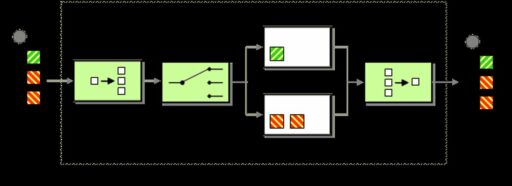Table of Contents
Crafting the perfect data science resume is a critical step in landing your dream job in the field. This article will guide you through the 5 key components that will make your resume stand out to employers. From showcasing your direct experience in the field to highlighting your technical acumen, these components are designed to present you as a well-rounded and skilled data scientist.
Key Takeaways
- Detail your relevant data scientist experience, focusing on achievements that demonstrate your expertise in data management, programming, and visualization.
- Showcase your machine learning skills by listing experience with various algorithms, models, and techniques to indicate your proficiency with current industry trends.
- Highlight any data scientist certifications you’ve obtained, such as Associate – Data Science Version 2.0 or AWS Certified Machine Learning
– Specialty, to validate your skill set. - Describe data science projects succinctly, emphasizing the dataset, cleaning techniques, models used, and the most accurate model, without being long-winded.
- List your relevant technical skills, including proficiency in Python, R, Hadoop, Tableau, TensorFlow, and statistical analysis, to demonstrate your comprehensive knowledge.
1. Data Scientist Experience


When crafting your data science resume, highlight your experience with precision and relevance. Your professional background should not only list the positions you’ve held but also showcase the impact you’ve made. For instance, if you’ve worked on a project that resulted in a significant increase in efficiency or revenue, make sure to quantify these achievements.
Your resume should tell a story that aligns with the job you’re applying for. Think ‘well-rounded’ as you write; you might include an exciting publication related to the job role, quickly outline your relevant experience or abilities.
Here’s a snapshot of common roles that data scientists transition from or to, which can provide context for your own experience:
- Data Analyst
- Data Engineer
- Machine Learning Engineer
- Research Scientist
- Business Intelligence Analyst
Remember, the goal is to present yourself as a valuable candidate with a diverse set of skills that match the job description. Tailor your resume to highlight the experiences that are most relevant to the position you are targeting.
2. Machine Learning Skills


In the realm of data science, machine learning (ML) skills are indispensable. These skills not only demonstrate your ability to analyze and interpret complex datasets but also your capacity to apply algorithms that will foster a desired outcome for a business or government.
Machine learning algorithms are the engines of machine learning, turning datasets into actionable models. Mastery of these algorithms is a clear indicator of your technical proficiency.
Understanding the mathematical foundations behind ML algorithms is crucial. This includes linear algebra, analytic geometry, matrix operations, vector calculus, optimization, regression, dimensionality reduction, density estimation, and classification. Additionally, a solid grasp of probability is essential for statistical modeling and algorithmic application in machine learning.
It’s also important to showcase your practical experience with ML projects, such as those focusing on prediction. Highlighting your hands-on experience with supervised and unsupervised learning algorithms can set you apart from other candidates. Below is a list of top skills that are sought after in a data scientist:
- Python (13.5%)
- Data Science (9.9%)
- Visualization (5.3%)
- Java (4.5%)
- Other Skills (66.8%)
By indicating your machine learning skills on your resume, you signal to potential employers that you are conversant with the latest industry trends and equipped to handle the challenges of modern data science.
3. Data Scientist Certifications


Certifications are a testament to a data scientist’s commitment to their professional development and expertise in the field. Ensure your certifications are prominently featured on your resume to stand out to potential employers. Here are some of the certifications that can bolster your data science credentials:
- Certified Analytics Professional (CAP)
- Cloudera Data Platform Generalist Certification
- Data Science Council of America Certification
- Associate – Data Science Version 2.0
- AWS Certified Machine Learning
- Specialty
- IBM Certified Data Engineer – Big Data
Certifications not only validate your skills but also keep you updated with the latest industry trends and technologies.
Remember to tailor your certifications to the job you are applying for; relevance is key. If you have certifications from renowned institutions or platforms, they can significantly enhance your resume’s appeal.
4. Data Science Project Descriptions


Your data science projects are a testament to your skills and a valuable part of your resume. Each project should be succinctly described, highlighting the problem solved, datasets used, and the results achieved. For instance, a project on credit card fraud detection should outline the methods for data cleaning, the models applied, and the accuracy of the predictions made.
When listing projects, consider the following structure:
- Brief introduction
- Dataset and data-cleaning techniques
- Models used and the best-performing one
- Significant results or findings
Remember, the goal is to convey your technical prowess and analytical thinking through your project descriptions. Avoid being long-winded; focus on the most impactful aspects of your work.
Here are some examples of data science projects that can enhance your resume:
- Building chatbots
- Credit card fraud detection
- Fake news detection
- Forest fire prediction
- Classifying breast cancer
These projects demonstrate a range of skills from natural language processing to predictive analytics, making your resume stand out in the competitive field of data science.
5. Relevant Technical Skills


In the realm of data science, technical skills are the bedrock of your expertise. It’s essential to tailor your resume to showcase the technical skills that align with the job you’re applying for. Begin with your strongest data science skills and ensure they are relevant to the position.
For instance, if you’re eyeing a role in data engineering, emphasize your proficiency with tools such as Azure SQL databases, Azure Data Lake, and stream analytics. Similarly, for a data analyst position, highlight your command over SQL, Python, Data Analysis, Tableau, and ETL processes.
Your technical skills section should not only list your abilities but also convey your proficiency levels. Organize your skills strategically, and limit the list to the most pertinent ones, ideally not exceeding seven.
Here’s a snapshot of how to structure your skills:
- Programming languages: Python, R, SQL
- Data visualization tools: Tableau, PowerBI
- Data processing tools: Azure Data Factory, Databricks
- Statistical software: SAS, SPSS
- Additional skills: Data Structures, Algorithms, MongoDB, Linux, Git
Remember, while hard skills are crucial for demonstrating your technical capability, don’t overlook the importance of soft skills. They are indispensable for teamwork and communication within a data science role.
Conclusion
Crafting the perfect data science resume is a blend of showcasing your technical prowess and demonstrating your ability to apply those skills in practical scenarios. From highlighting your most impactful data science projects to listing relevant certifications and skills, each section of your resume should be a testament to your expertise and experience in the field. Remember to format your resume effectively, keeping it concise yet comprehensive, and tailor it to reflect the job title and responsibilities you’re aiming for. By incorporating these key components, your resume will not only stand out to recruiters but also serve as a powerful tool in landing your dream data science role.
Frequently Asked Questions
How should I list my data scientist experience on my resume?
Focus on achievements that demonstrate your skills in statistics, programming, data visualization, and data management. Use the job title ‘Data Scientist’ and emphasize quantifiable accomplishments and relevant skills.
What machine learning skills are important to include on a data science resume?
Include skills that show you are up-to-date with industry trends, such as TensorFlow, neural networks, machine learning techniques, predictive models, and machine learning algorithms.
Which certifications should I highlight on my data science resume?
Prominent certifications to include are Associate – Data Science Version 2.0, AWS Certified Machine Learning – Specialty, and IBM Certified Data Engineer – Big Data.
How does one write a data science project description for a resume?
Start with a brief introduction, then describe the dataset, data-cleaning techniques, models used, and the most accurate model. Keep the description concise and focus on significant points.
What are some common technical skills to list on a data scientist resume?
List skills such as Python, data science, Java, Hadoop, Tableau, data analytics, Scala, SAS, and statistical analysis.
How long should my data science resume be?
Recruiters recommend limiting your resume to one page, focusing on the most relevant experiences and skills for the position you are applying for.





